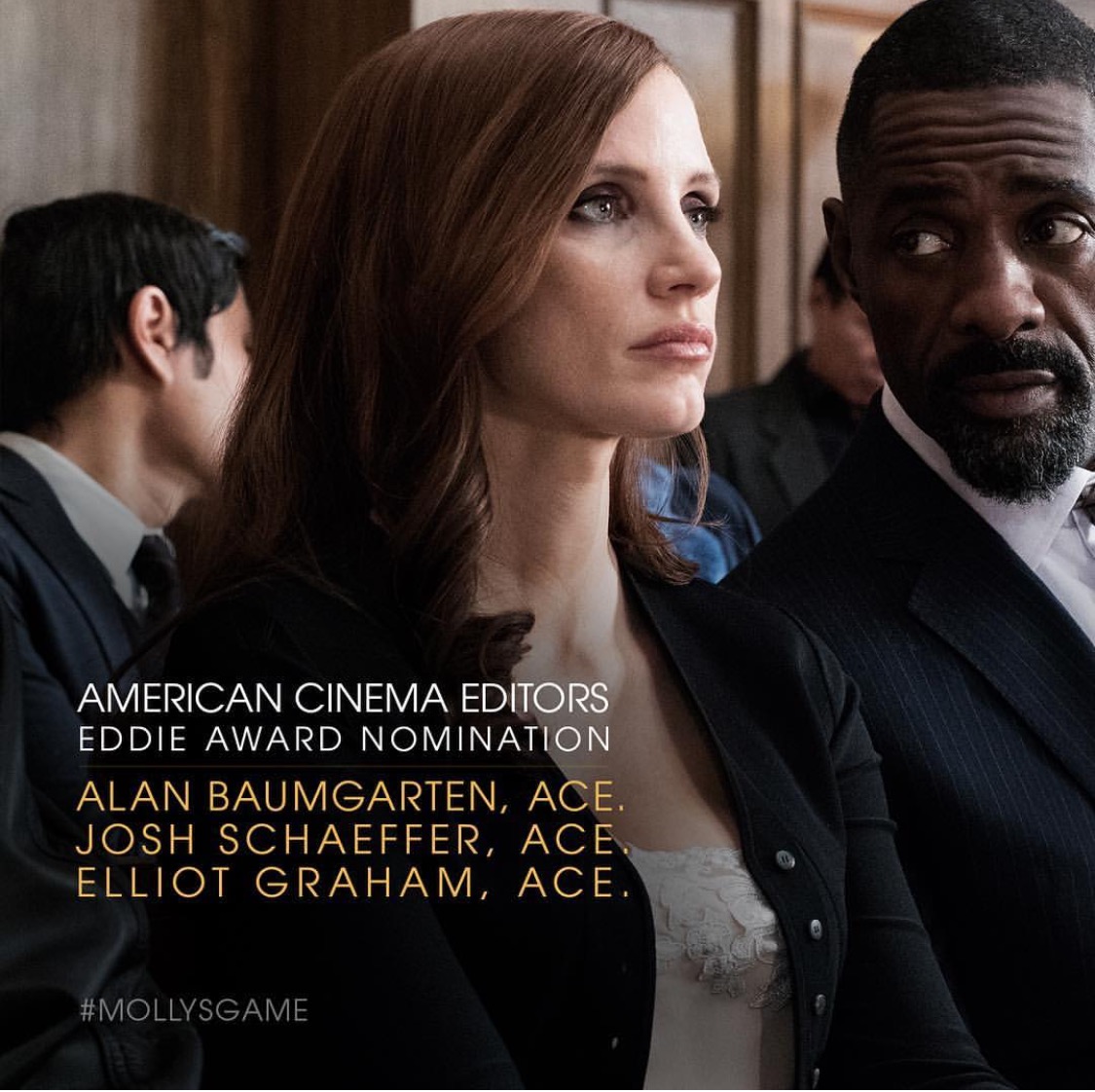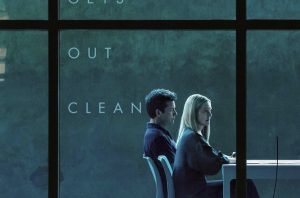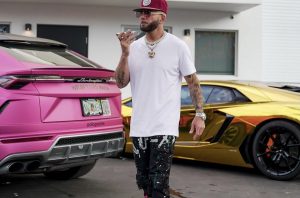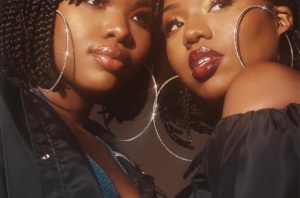We spoke to the real-life Molly Bloom to talk about moving on from the underground world of high-stakes poker.
Remember when a hopeful Olympian-class skier named Molly Bloom received a debilitating back injury thanks to a lone stick in some snow? The same skier who years later would end up running an illegal but high-profile gambling ring in LA? The same high-profile gambling ring that hosted celebs like Ben Affleck, Tobey Maguire, and Leonardo DiCaprio, and led the Russian mob to beat Bloom within inches of her life? That same life that was nearly destroyed by the FBI, which came rushing in to shut her shit down? Remember that time? I sure as hell didn’t, and can still barely believe it happened after seeing Molly’s Game. Now, the story will be immortalized for everyone else to question thanks to director and writer Aaron Sorkin.
And, yes, it’s pretty good, but the movie still left me with questions. In my attempt to understand this story that comes off as some drunkard’s fable, I spoke Bloom herself. I needed the whole thought process behind this scary and insane ride. How has she grown since then? And is Tobey Maguire still the same dick as Molly’s Game shows him to be?
VICE: This film was very intimate and very truthful. Almost like a visual diary. What was it like to see those flawed parts of your life displayed so honestly?
Molly Bloom: Aaron Sorkin wrote and directed an extraordinary film. A lot of what makes it so special is that he allowed my character to be me, to be flawed. He allowed for an honest and complex picture of what it’s like to just be a human being and make choices. I gotta say, there’s something very cathartic for me about first coming out with my book, and then telling on yourself and living through that. I kept a lot of the dirt to myself before the film, but after working eight months with Aaron, I really kind of came clean. Between the novel and working with Aaron, I’ve probably [done] 20 years worth of therapy [laughs].
And you had to have some initial fears about the project before it came out. This was going to be all about you.
Well, it was I who pursued Aaron specifically because in writing the book, I had left a huge mess of my life and a big part of that was knowing that my mom had to put her house up just to help me with my legal bills. And my criminal attorney, much like in the film, personally vouched for me for $250,000 that I didn’t have and it saved my butt. So it wasn’t just my life I was trying to save—it was also the people who were important to me. When I took in the personal inventory after the wreckage I had caused, the story itself seemed like the most monetizing asset so that I could be closer to paying these people back.
So here I was after writing this book, going around Hollywood asking anyone if they could get me a meeting with Aaron and they’re just laughing at me [laughs]. I just wanted to try, so once we met, everything changed once he was onboard. He fought hard for this story that wasn’t about a girl who falls in love. It didn’t have cliché themes. He just wanted to tell an honest story and put his career on the line for having us interact at all, because no one wanted to touch this because of the famous people involved. There was a fear in Hollywood.
You could have ruined a lot of lives with what you knew. One of the things that seemed so telling was how much you were willing to fall on your own sword. And good people were telling you otherwise. Where was your resolve coming from?
I made these choices. I made the choice to go into the world of underground poker. I profited from it, and these people enabled me to profit from it. When I met the consequences for those choices, the consequences including losing all of my money and facing jail time, it really felt like, if I turned around and threw all these people under the bus, I would never be able to get my integrity back and that would’ve been a life sentence. That didn’t compare to the life sentence of knowing that I made this really terrible choice and ruined lives.
Throughout this whole thing, you had that moral fiber, which is honestly weird given the stereotypes of illegal gambling. Like collecting debts for instance, you never resorted to violence. How did you wrestle with those potential decisions business-wise?
Taking full responsibility and accountability was the secret here. I had to do my job properly. Sure, if I had figured out a way to have private investigators get information from banks, I could have found pretty much anything on anyone. So if I was doing my job, there would be no reason that I couldn’t collect. So when someone stiffed me, nine times out of ten, it was my fault. I ate it. I mean, what was I going to do? I didn’t have any traditional resources, and I wasn’t a bank, so I wasn’t going to intimidate anyone either [laughs]. My main responsibility was in vetting these players and making sure they were capitalized, and that was the key to not getting stiffed. The very worst time I got screwed ended up costing me $250,000, and that really hurt. But I wrote the check—what are you going to do?
Full names were never mentioned, despite the fact we know about people like Ben Affleck, Leonardo DiCaprio,and Tobey Maguire participated in your gambling ring.
Yeah. When I sat down to write a book I was like, how do I do this in a way that still tells a compelling story without doing too much harm. Most of the names were already in the public domain from the Bradley Ruderman ponzi scheme. I got rejected by every publisher except for one because they wanted the real dirt. They knew I had more, and of course I did. But I was like, look, I’ll mention the names that have already been mentioned, and I’ll give it color, but I’m not going down that road where I tell things that would sell books but also hurt people in the process.
You really did have that dirt. I don’t generally hang with celebrities, but you saw a lot of private sides to them. Did your view of that whole celebrity culture change during this whole experience?
Well, there’s that first night when you walk into a game, and being in my early 20s from a small town, and seeing very famous people in the flesh, it’s jarring. It just feels weird. But it normalizes really quickly when you see that people are just people. And very quickly, the game was my startup in terms of building a business. Celebrities were assets to me. And yeah, maybe you and I don’t have this big fantasy about celebrities at this stage, but it matters. People want to sit at a table with them, be close to them, and this was a big draw to the game. The whole system took on a new meaning to me when I was looking at it through the lens of building a business.
And we gotta talk about the instance of you being roughed up by a section of the Russian mob after you turned down an offer for protection. Most people would have left at that point. But you continued with the intent to eventually get out. Honestly, how far would you have gone if the FBI and such never stepped in?
Wow… I think it would have been a really bad ending honestly. That was a really dark thing that happened during the darkest time of my life. I just think that the enemy within me was more formidable than the enemy without at the time because I kept going. I had very little regard for my safety or my life, and I was just like, No, I gotta run more games, got to collect more money. Who am I without this thing? I can’t go back to being a nobody. Those things eclipsed basic survival, and I had this really deep, dark awareness that my life was out of control. And as a final blow, there came the FBI… but maybe it was a good thing at the end of the day.
So has your perspective on success or wealth changed since this experience?
Oh my God, absolutely. When I was making the most money at the top of my game, driving Bentleys and all that, I felt so existentially empty. All these ideas I had as a kid about making a lot of money—about being hyper successful and life being good. I now know that not to be true. And I’m not knocking success or ambition, that’ll always be a part of me, but I know for sure that I did it all wrong in my former life. I know for sure that you have to re-define power as power that comes from within. Success needs to be more comprehensive and attached to something with meaning.
What I did was bold, I was damn good at it, and I was successful but none of it was important. It meant nothing. I was enabling people’s addictions and I felt lives come apart. All that external adulation came from growing up with two impressive brothers and a father that was really focused on that idea that I needed to build myself on the outside in. That I needed to seek applause or approval from the world. That’s a sure way to feel really miserable [laughs].
So level with me. Is there any aspect of that life that you still miss?
For a long time… I grieved over [the] glamour of that life. It’s been seven years though, and this is a pretty exciting moment for me. It feels similar in that you take a big risk, and you put in the time, and the stakes are super high while you just wait and see.
What do you want people to take away from your personal story of ups and downs based on where you are now?
I would want them to know that when your life falls apart, or it feels like you’re never going to get where you need to go that it’s not over. It’s not even close to being over. Keep getting up and showing up. The human spirit is so resilient and failure teaches you so much. This was the theme for me in 2011, because when this whole thing blew up, there was a deep fear that nothing was ever going to be OK, and now, it’s so much more than OK.
So you did this thing and you were damn good at it, despite that illegal part. What do you plan on doing from here?
I kind of want to take a look at the skill set that I had acquired from this experience and all that I have learned throughout these years and apply it in a way that has actual meaning. Something that centers on what’s important to me. Building a community and collaborating with other ambitious women is a really interesting area to me. I was always able to network and build environments, and a co-working space for women with a digital layer on top is really interesting. Not at the exclusion of men, my brand of feminism is not supremacy, it’s equality. But I recognize the power in shared experiences.
So going back to the film, what was that one thing that surprised you the most when seeing your life reflected back on film?
I just… couldn’t believe how someone could take this information I had given, and recreate it so well in such a compelling fashion. Seeing it come to life was amazing. It’s like Aaron was there. He didn’t deviate from the truth. A lot of films in this biopic category play with a lot of creative licenses, and yes, there was some of that in terms of how he dealt with certain composite characters, but the rest was all true. He found a way to weave it all together.
So last question. Did Tobey Maguire ever reach out to you for treating you like shit and essentially asking you to bark like a seal for a tip?
[Laughs] No, but it’s OK, though.
Can you ever look at this guy as Spider-Man again?
I haven’t even tried [laughs].
By Vice





